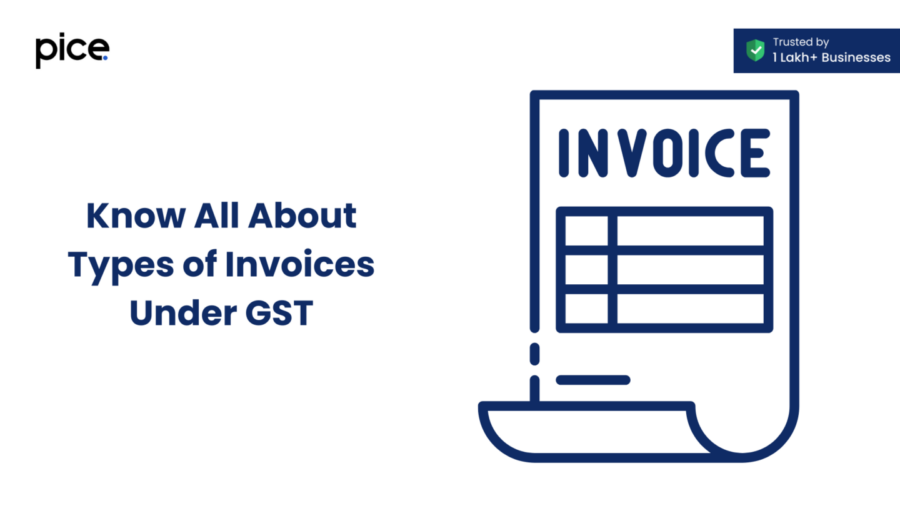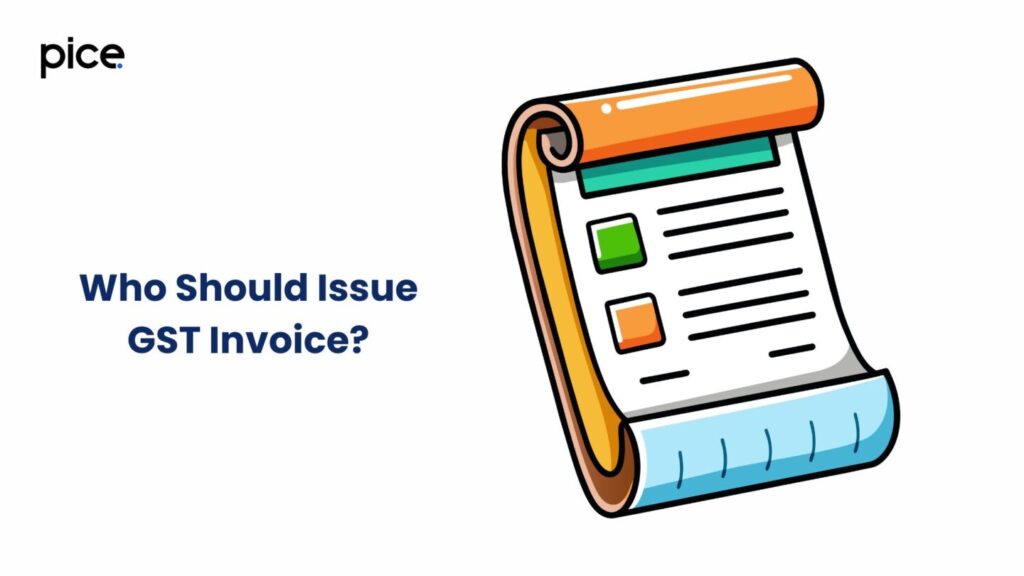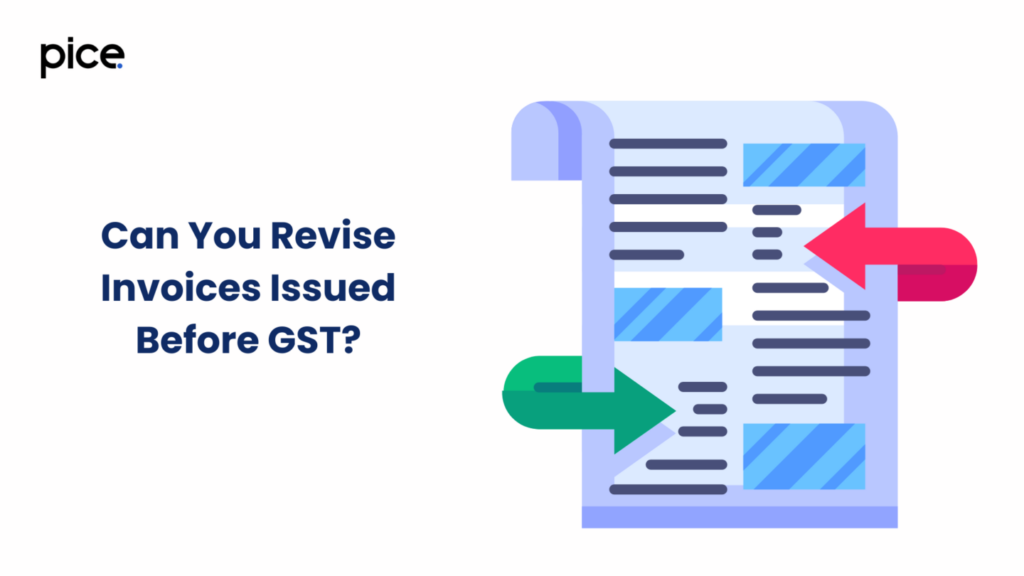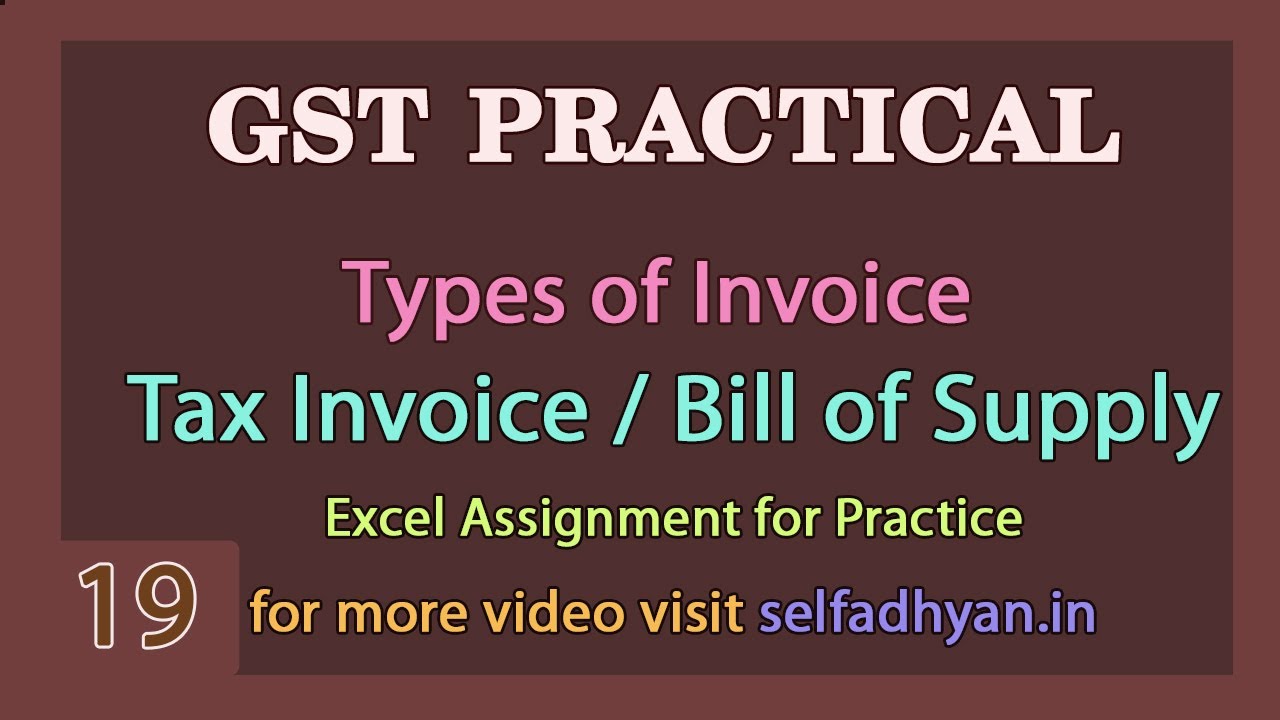Know All About Types of Invoices Under GST
- 29 Aug 24
- 9 mins

Know All About Types of Invoices Under GST
- What Is a GST invoice?
- Types of Invoices in GST
- Who Should Issue GST Invoice?
- What Are the Mandatory Fields a GST Invoice Should Have?
- By When Does One Need to Issue the Tax Invoice as Part of GST Billing?
- Can You Revise Invoices Issued Before GST?
- What Is the Minimum Amount for Which One Can Raise a Tax Invoice for GST Billing?
- GST Tax Invoice Rules
- Conclusion
Key Takeaways
- Essential for Compliance: GST invoices are crucial for documenting transactions and ensuring accurate tax compliance.
- Various Invoice Types: Includes Tax Invoice, Credit Note, Debit Note, Bill of Supply, Consolidated Tax Invoice, and Aggregate Invoice, each with specific regulations.
- Mandatory Fields: Must include invoice number, date, GSTIN, customer name, supply location, HSN/SAC code, tax details, and the supplier's signature.
- Issuance Deadlines: Issued by goods delivery date or within 30 days for services (45 days for financial services by banks/NBFCs).
- Strict Compliance Needed: Following GST invoice rules is crucial to avoid penalties and ensure smooth business operations.
When engaging in the exchange of goods or services, the creation of a bill of sale is crucial. Under the current regulations, when these goods or services fall under the purview of the Goods and Services Tax (GST) Act, this document is known as a GST Invoice.
There are various types of invoices in the GST regime, each serving a specific purpose and adhering to distinct regulations. In this blog, we will walk you through a comprehensive guide on invoicing under GST, exploring its different types and the detailed rules for preparing them to ensure business compliance.
What Is a GST invoice?
Acting as evidence of transactions, a GST invoice is a bill containing the list of goods and services that sellers send to customers. It further includes the amount due for payment and the taxes payable. One can examine a GST invoice to determine the prices of products or services before the Central Goods and Services Tax (CGST) and State Goods and Services Tax (SGST) are applied. It enables businesses to efficiently calculate and report their GST liabilities, ensuring accurate and timely fulfilment of their tax obligations.
Types of Invoices in GST
Under the new tax regime and GST Act of 2017, there are several types of GST invoices. Let us discuss some of the most common ones:
Tax Invoice
A registered supplier of goods or services needs to issue an invoice to his/her customer, mentioning the amount of taxes payable. This invoice is known as the tax invoice. A tax invoice needs to be issued within 30 days from the date or time of supply to ensure validity. In case the amount of the tax invoice is less than ₹200, issuing an invoice is not required. However, if the amount exceeds ₹200, it becomes mandatory to prepare a tax Invoice.
Credit Note
A supplier/service provider needs to issue a credit note which is a legal document to the buyer if the buyer returns the goods or there is a reduction in the value of goods. One needs to declare the details of the credit note or invoice details while filing GST returns to ensure reduced tax liabilities in this type of invoice. Moreover, a supplier needs to issue credit invoices by September of a financial year or before the date of filing an annual return, whichever date is earlier.
Debit Note
If a seller realises they charged less than the actual value of goods, services, or both, they can issue a debit invoice to the buyer. The supplier or seller needs to declare the debit note value in the GST return for the month in which the supplier issues this type of invoice. This type of tax invoice is also issued to rectify errors or adjust the value of the original invoice.
Bills of Supply
If an individual is a registered person under the GST composition scheme, or if a supplier deals in exempted goods or services, he/she needs to issue a bill of supply to the buyer. It is similar to a tax invoice; however, this type of invoice excludes the tax payable amount. The components mentioned in a bill of supply include description, quantity, unit, tax rate, value, HSN/SAC and additional associated information.
Consolidated Tax Invoice
A supplier needs to issue a consolidated tax invoice when the transaction amount of the invoice does not exceed ₹200. Further, the supplier or seller can issue this invoice if the recipient is a non-registered taxpayer or does not need a tax invoice. The consolidated invoices need to include all the essential details mentioned in the bill of supply to make them GST-compliant invoices.
Aggregate Invoice
When dealing with multiple small-value transactions, where each invoice is under ₹200 and the buyers are unregistered, sellers can simplify their invoicing by issuing an aggregate or bulk invoice. Imagine you have issued 3 invoices in one day—₹80, ₹90 and ₹120. Instead of maintaining separate records, you can merge these into a single invoice totalling ₹290.
Who Should Issue GST Invoice?

A GST-registered business needs to ensure timely issuance of GST invoices to comply with GST norms. On the other hand, if you need to claim an Input Tax Credit, you need to get a GST invoice from your vendors.
What Are the Mandatory Fields a GST Invoice Should Have?
Here are the mandatory fields that a GST invoice should include:
- Invoice number and date
- GSTIN of the taxpayer
- Customer name
- Location of supply
- Shipping and billing address
- 6-digit HSN or SAC code
- Additional details about the supplied items such as description, quantity and units
- Tax Payable
- Total value of supplied goods or services
- GST rate or tax rate and tax amounts such as CSGT, SGST or IGST amounts
- The GST payable norm such as the reverse charge mechanism
- Supplier’s signature
Alternatively, if the buyer is unregistered under GST or if the GST invoice value is less than ₹50,000, the invoice should include the following mandatory fields:
- Name and address of the buyer
- Shipping address
- Name and code of the state
By When Does One Need to Issue the Tax Invoice as Part of GST Billing?
The date of issuing a tax invoice as a part of GST billing differs for goods and services. Here are the dates when a supplier should issue a tax invoice for goods and services:
For Supply of Goods
In the case of normal goods, the supplier needs to issue the tax invoice on or before the date of goods delivery for all taxable supplies. On the other hand, for goods with continuous supply, the seller has to generate the tax invoice on or before the issuance date of the account statement.
For Supply of Services
A supplier of services needs to issue the tax invoice, receipt voucher, payment voucher and refund voucher within 30 days from the date or time of supply. However, in the case of banks and NBFCs, the supplier needs to issue the tax invoice within 45 days of service supply for all financial transactions.
Can You Revise Invoices Issued Before GST?

One can revise a GST invoice or regular invoice issued before GST to verify the rate of taxes applicable. Prior to applying for a permanent registration certificate, sellers, registered under the current regime, need to apply for a provisional registration certificate on the GST portal. However, neglecting to issue a GST invoice or issuing an incorrect invoice can attract significant penalties from tax authorities.
What Is the Minimum Amount for Which One Can Raise a Tax Invoice for GST Billing?
The minimum amount for which you can raise a valid tax invoice for GST billing is ₹200 if the recipient is an unregistered person. However, the supplier needs to issue the delivery challan before the tax invoice.
GST Tax Invoice Rules
There are certain rules associated with each type of invoice of GST, pertaining to the serial number, signature and payment rules. Take a look:
GST Invoice Serial Number Rules
The serial number needs to be alphanumeric and numbered in sequential order. Further, the GST invoice number must be 16 digits or less to ensure validation.
GST Invoice Signature Rules
The signature on the GST invoice must be either hand-signed or signed digitally. If it is a digital signature, it must align with the Information Technology Act, of 2000. In addition, the GST invoice needs to be signed either by the supplier or by representatives on the supplier’s behalf.
GST Invoice Payments Rules
If an unregistered entity receives advance payment or normal payment from a registered entity, the latter has to issue the GST invoice. Further, if any registered person or entity receives a GST-exempt supply of a product or service, the entity has to issue a bill of supply rather than issuing a tax invoice. Businesses should clearly state payment terms on their invoices, including the due date and accepted payment methods.
Conclusion
To ensure a smooth invoicing process, registered business owners must follow the signature, tax payment and serial number rules for all types of invoices in GST as per the Act, 2017. One must also include all mandatory fields to provide detailed information. In addition, adhering to invoicing rules and prescribed format not only ensures GST compliance but also boosts the efficiency of your business transactions, resulting in more precise and accurate records.
💡Facing delays in GST payment? Get started with PICE today and streamline your GST payments. Click here to sign up and take the first step towards hassle-free GST management.




















